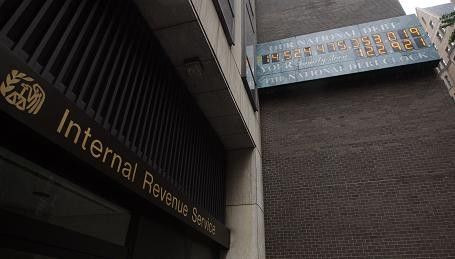IRS Revives Amnesty Programs for Offshore Accounts

(Reuters) - The Internal Revenue Service said on Monday it is reopening a voluntary disclosure program for taxpayers who have evaded taxes by hiding money offshore in secret bank accounts.
Two previous IRS programs, in 2009 and 2011, brought in more than $4.4 billion in taxes from tens of thousands of tax evaders, said the tax collection agency.
The revival of the tax dodger forgiveness program comes at a time when the U.S. government, facing enormous budget deficits, is cracking down hard on offshore tax evasion.
The tax-collecting IRS and the tax division of the Justice Department are probing Swiss and Swiss-style banks suspected of selling tax evasion services to scores of wealthy Americans.
The inquiries are expected to involve the Swiss government authorizing the handover of names of U.S. clients of Swiss banks, putting some taxpayers at risk of prosecution if they have not already disclosed their accounts to the IRS.
IRS Commissioner Douglas Shulman said the number of tax evaders is hard to pin down.
He said, We're continuing to collaborate with other governments to get information about taxpayers hiding assets overseas, and we continue to have investigations of banks, advisers and other individuals.
The reopening of the forgiveness program also signals that the IRS believes there are many, perhaps tens of thousands, of U.S. taxpayers who are still evading taxes.
This signals that the IRS is anticipating a wave of increased enforcement, said Jeffrey Neiman, a former federal prosecutor now in private practice. By reopening the program, the IRS is giving Americans with overseas accounts a vehicle to avoid criminal prosecution.
Unlike the previous programs, the reintroduced program does not have a deadline by which taxpayers must enroll. This program will be open for an indefinite period until otherwise announced, an IRS statement said.
The reopened disclosure program carries slightly less generous terms compared with those of previous years. Participants must file all original and amended tax returns and include payment for back-taxes and interest for up to eight years, as well as paying accuracy-related or delinquency penalties.
Participants face a 27.5 percent penalty, but some may qualify for a 5 percent penalty or a 12.5 percent penalty, depending on the amount of assets they hold overseas.
People who came in earlier get a better deal, but for people who come in now, it still makes sense, Shulman said.
If we catch people before they come in voluntarily, it's going to be a lot worse outcome for the taxpayer, Shulman said.
Shulman said the IRS reserved the right to change the terms of the program or shut it down altogether at any time.
--
© Copyright Thomson Reuters 2024. All rights reserved.











